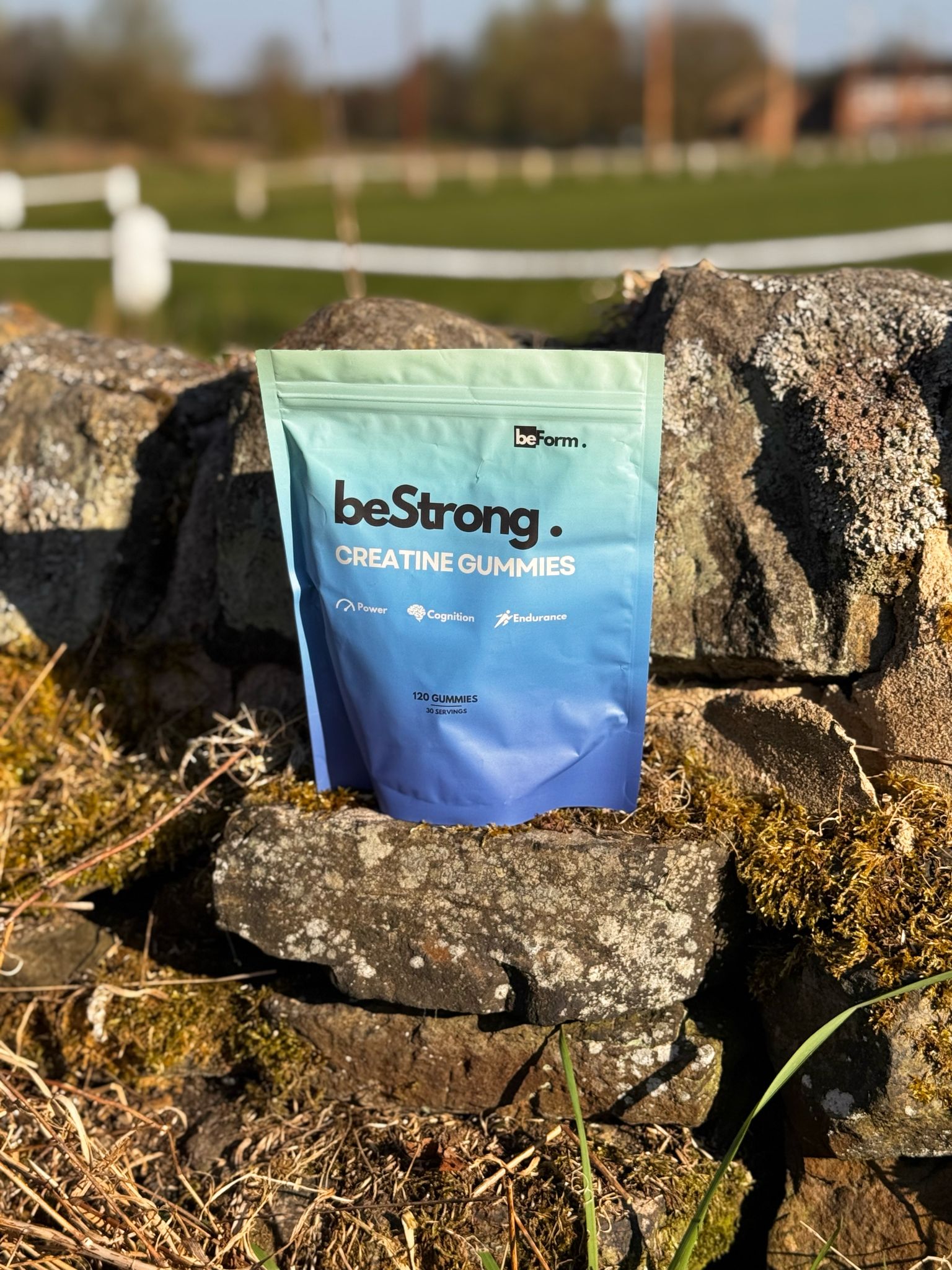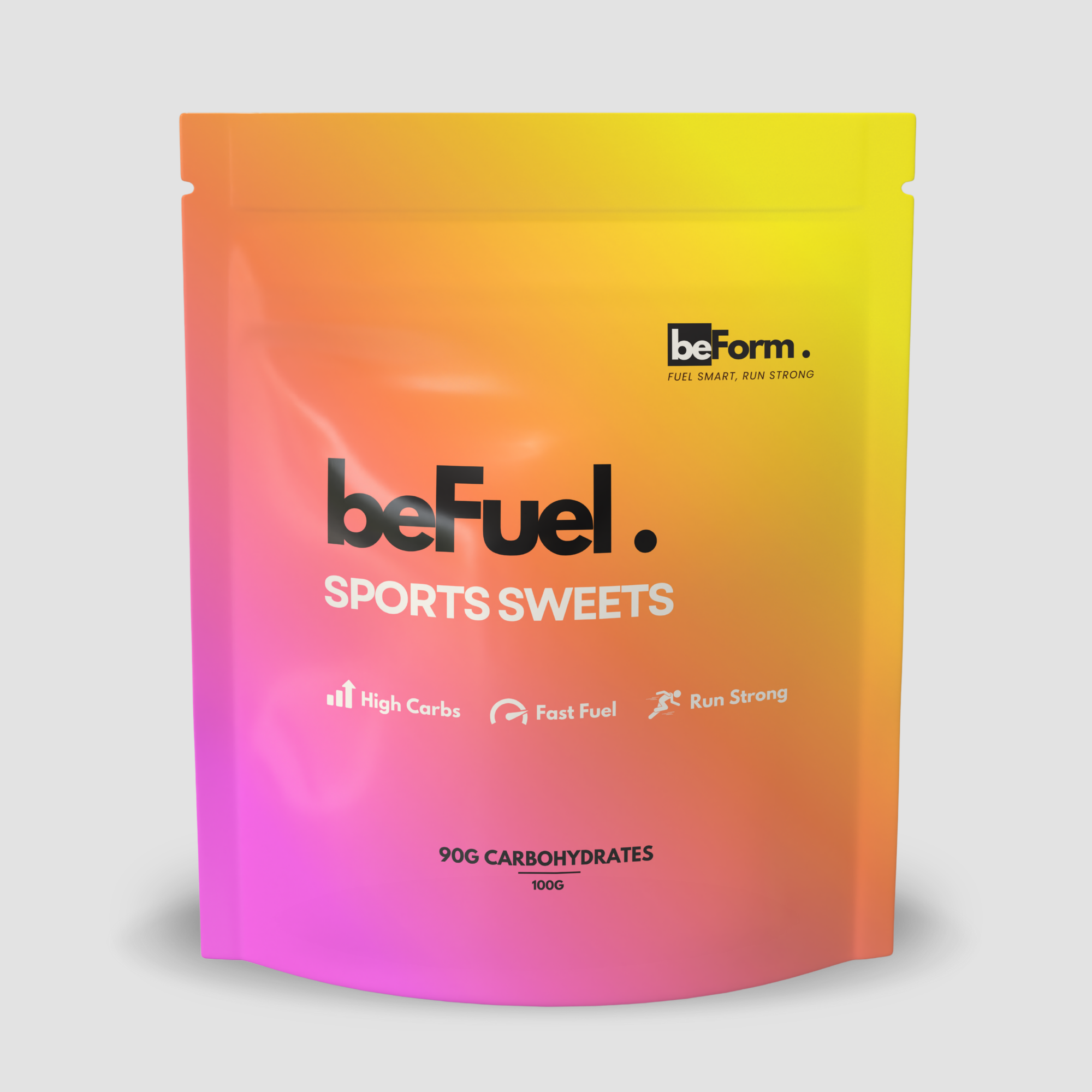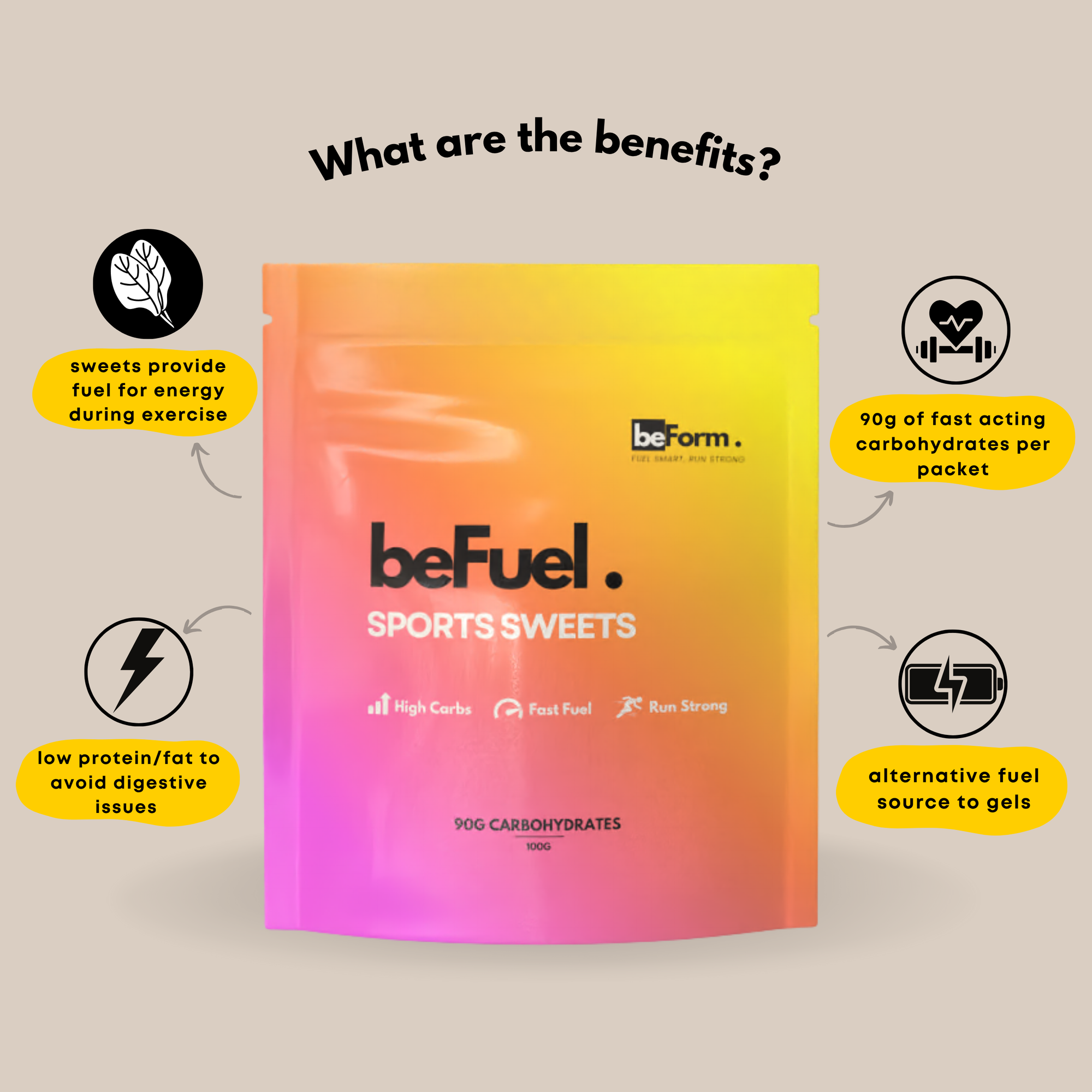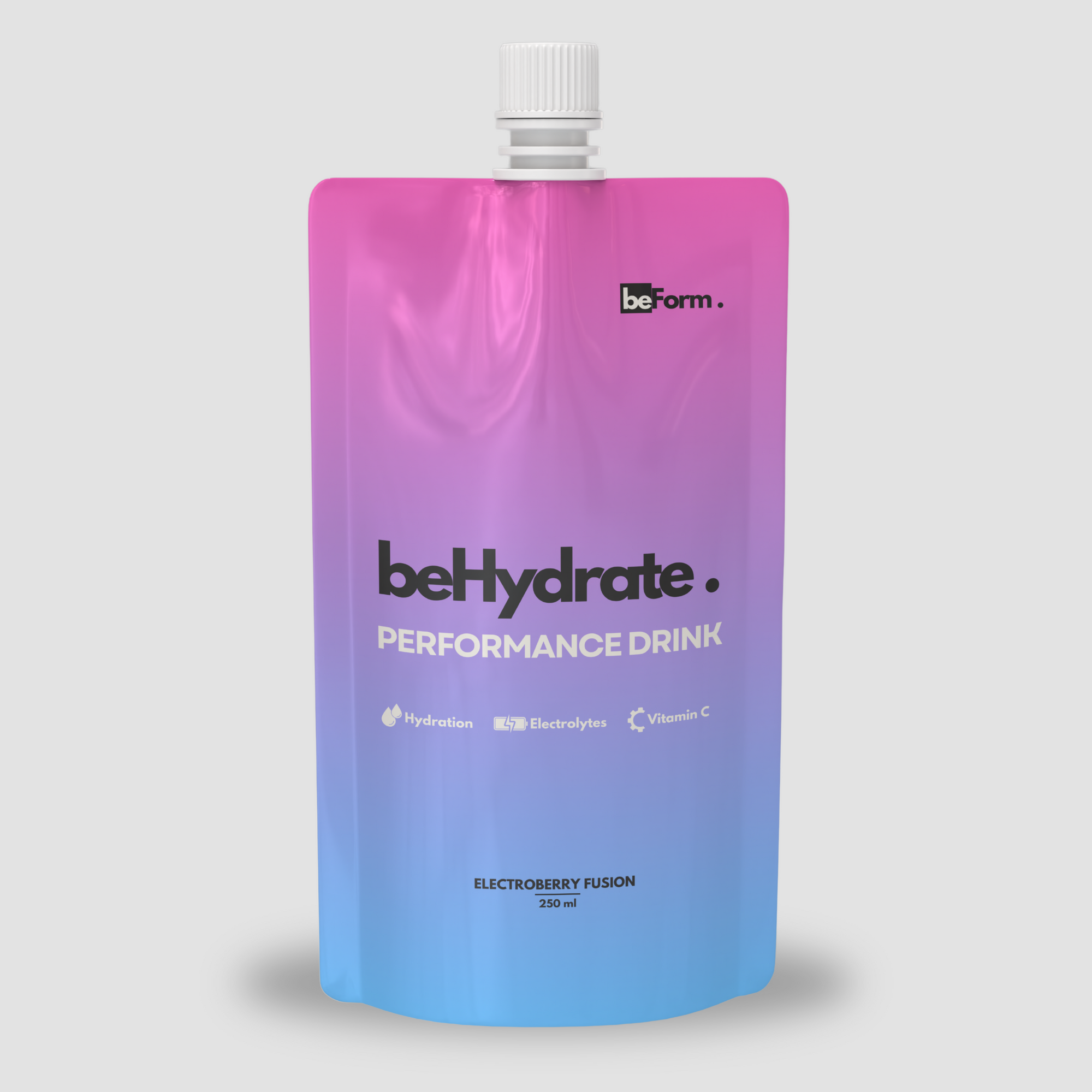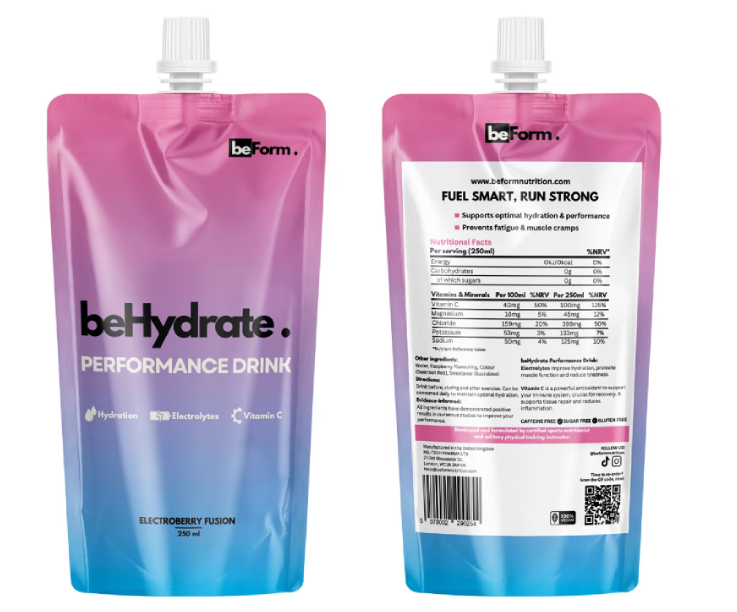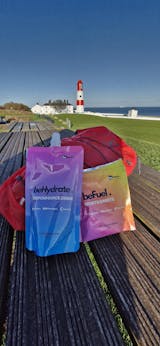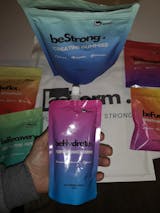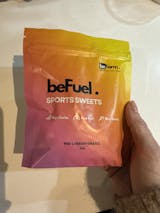I have completed numerous marathons from Manchester's bustling streets to the Dalby Forest trails.
While dedication, consistent training, and planning are the foundations of marathon success, strategic supplementation can add that extra boost. Supplementation helps overcome fatigue while optimising recovery.
Supplements can provide essential nutritional support during intense training for marathon runners. By filling any nutritional gaps that arise during preparation and providing your body with additional energy to meet demanding physical demands, supplements can add an extra edge in performance and success.
Supplements have never been a magic bullet for me (that said, beEnergy is a winner), rather, they form part of a holistic approach to fueling.
By supplementing a healthy diet and rigorous training regime with supplements, I can fill any nutritional gaps during periods of intense preparation while supporting my body during intense periods of preparation.
This guide is tailored for beginning to intermediate marathon runners looking for information about supplements that could impact their training and race-day performance.
I share my supplement practices used during marathon training; what works for me has been discovered over time through experience and observing what my body requires based on years of trial and error, plus my knowledge gained from my post-graduate degree and being an army physical training instructor...you're in good hands!
Hopefully, it provides a useful starting point so you can discover and adapt according to your specific requirements.
Important Disclaimer: Before diving in, please keep in mind that I'm only sharing my personal experience. For best results, it is wise to consult a healthcare provider or registered dietitian before beginning any new supplements, as they can assess individual needs, identify possible interactions between medications, and ensure supplementation is safe and suitable for you.
Any dosage or recommendation below is an example only and should not be seen as medical advice.
My Marathon Fueling Supplement Checklist
Here is my Marathon Fueling Supplement Checklist, organised according to when they should be used:
1. Pre-Training Supplements: Laying the Foundation
These supplements are intended to promote overall health, address potential deficiencies and help prepare my body for the demands of training. Consider them building blocks toward success!
Multivitamin:
I take one multivitamin each morning before breakfast as an insurance policy against nutritional depletion during marathon training, such as vitamin depletion due to immunity or energy production needs.
A good brand with comprehensive vitamin and mineral coverage, including Vitamin D, B Vitamins and magnesium levels, should be preferred.
Why not try beRecovery, which consists of 14 ingredients covering vitamins, minerals, electrolytes and ayurvedic herbal extracts proven to enhance physical and mental performance?
Omega-3 Fatty Acids:
Omega-3s are powerful anti-inflammatories. Marathon training places immense strain on your body, leading to inflammation. Omega-3s help combat this by reducing muscle soreness, supporting joint health, and even improving cardiovascular function.
I consume beFlex, which contains Omega-3, amongst 4 other proven nutrients to improve your joint health. Research suggests omega-3 fatty acids can indeed reduce muscle soreness after exercise (Tartibian B et al, 2009).
Iron (If Needed):
Iron is essential to oxygen transport in muscles, so having low iron levels can lead to fatigue and decreased performance. Our beRecovery contains a moderate amount of iron, with iron being key for female athletes.
2. Training Supplements: Fuelling the Fire
These supplements are specifically formulated to provide energy, replenish electrolytes, and minimise muscle breakdown during extended runs.
Their goal is simple: they're there to keep you going strong when pushing the
envelope.
Electrolyte Drinks:
As you sweat, electrolytes like sodium, potassium and magnesium can become depleted and must be replenished to support muscle function, nerve transmission and fluid balance.
Replenishing them during long runs prevents cramps, dehydration and fatigue. Electrolyte tablets or drinks should be consumed every hour during a long run and thereafter every 30-45 minutes, depending on intensity and weather conditions.
Electrolyte drinks that contain an appropriate mixture of sodium, potassium, magnesium, and chloride are my go-to choice. Hydration is also key; I strive to drink plenty of water throughout the day, particularly before, during, and after training sessions.
Energy Chews:
Energy gels and chews provide a concentrated source of carbohydrates, which are the primary fuel for endurance exercise. Their fast-acting carbs give me an instant energy boost while simultaneously helping prevent glycogen depletion.
I consume one packet of beFuel every 90 minutes during long runs after the initial hour; aim for 20-30 grams of carbohydrates in each serving for best results! It's essential to practice your fueling strategy during training so there are no surprises on race day!
BCAAs (Branched-Chain Amino Acids):
BCAAs can help prevent muscle breakdown and fatigue on long runs, improve mental focus, and lessen perceived exertion.
I take BCAAs before and during long runs by mixing them in my water bottle; looking for supplements with a 2:1:1 ratio of leucine, isoleucine, and valine is ideal. Studies suggest BCAA supplementation reduces muscle damage after exercise (Shimomura Y et al, 2010).
3. Post-Training Supplements: Rebuilding and Recovering
These supplements are intended to support muscle recovery, replenish my glycogen stores, and prepare my body for my next training session. Recovery is just as essential as working out!
Protein:
Consuming protein after running helps strengthen damaged muscle tissue and reduce muscle soreness, making recovery quicker. I typically consume 500ml of chocolate milk as soon as 30-60 minutes after each run for optimal absorption and high protein content.
Creatine:
Creatine can improve both muscle strength and power while aiding recovery from workouts, replenishing ATP energy stores for muscle contraction.
I take between 3-5 grams of creatine monohydrate daily, regardless of training status, which has been well researched and is cost-effective (Rawson et al, 2003). Research supports its use to increase muscle strength and power (Rawson, E. S. & Volek J S 2003).
I use our beStrong creatine gummies, which are a tasty and convenient way to get all the creatine my body needs.
Carbohydrates:
After running long distances, my glycogen stores are depleted quickly. Consuming chocolate milk helps rapidly replenish them, speeding recovery and prepping me for future workouts.
As already mentioned, I drink chocolate milk for a good hit of protein, but it also contains the ideal carbohydrate-to-protein ratio to stimulate recovery.
While my supplement regimen checklist provides an in-depth view, it's crucial to keep these essential factors in mind.
1. Individual Needs:
Everyone's body is unique, and what works for me may not work for you. Aspects such as age, gender, training intensity and individual metabolism all play an influential role when determining supplement needs.
Experiment with different supplements and dosages until you find one that suits you. Keep a training log to track how they affect performance - treat yourself like an experiment of one! Additionally, consult a healthcare provider or registered dietitian to help find an optimum strategy tailored specifically to you!
2. Quality and Purity:
Since supplement industry regulations can sometimes be loosely managed, you must choose reliable brands that prioritise quality and purity.
Look for products with third-party testing for contaminants such as heavy metals, pesticides and banned substances; this ensures you receive safe yet effective supplements.
3. Gradual Introduction:
To reduce any adverse reactions associated with multiple supplements being introduced at once, introduce each one or two at a time and monitor any possible reactions. This way, you can identify potential sensitivities or allergies early.
My Tips & Tricks
Over time, I have picked up several helpful hints and techniques:
Gut Health:
For optimal nutrient absorption, maintaining a healthy gut is crucial. I aim to eat a diet rich in fibre, probiotics and prebiotics to support my well-being and avoid processed foods or excess sugar, which could damage my gut microbiome.
Pay Attention to Your Body:
Observe how supplements react with your body. If any side effects arise, such as digestive distress, headaches or skin rashes, discontinue use immediately and seek professional guidance from healthcare providers.
Mindful of this fact, supplements should only ever be seen as one element in an overall holistic plan to marathon success. Training regularly, eating right and getting enough rest are all vital elements to marathon success.
Conclusion
This checklist offers a comprehensive view of the supplements I take during marathon training. However, supplements should only be seen as one piece of a holistic strategy; consistent training, balanced eating habits and plenty of rest are key components to ensure marathon success.
Start here as a base, experiment with various supplements and dosages (under professional advice!), and adapt this checklist to meet your individual needs. Just remember: listen to your body first before beginning any new supplement regimens!
Now I want to hear from you! What are your go-to fueling strategies for marathon training? Share them in the comments below so we can all benefit from learning from each other and working toward our marathon goals together.
Please share any insight or advice on our Facebook page so we can all work together and overcome this obstacle and enjoy running to the fullest.
References:
Rawson, E. S. and Volek, J. S. (2003). Investigating the Influence of Creatine Supplementation on Muscle Strength and Weightlifting Performance. Journal of Strength and Conditioning Research 17(4) 822-831. Effects of creatine supplementation and resistance training on muscle strength and weightlifting performance - PubMed
Shimomura, Y., Inaguma, A., Watanabe, S., Yamamoto, Y., Muramatsu Y, Bajotto G and Mawatari K (2010) explored branched-chain amino acid supplementation prior to squat exercise as an influence on muscle damage markers and effector proteins. International Journal of Sport Nutrition and Exercise Metabolism 20(3) 236-244. Branched-chain amino acid supplementation before squat exercise and delayed-onset muscle soreness - PubMed
Tartibian, B., Maleki, B. H., Abbasi, A. and Gohari, M. (2009). Omega-3 Fatty Acid Supplementation Alleviates Exercise-induced Muscle Damage in Research Animals. International Journal of Sport Nutrition and Exercise Metabolism 19(5) 508-520. https://pmc.ncbi.nlm.nih.gov/articles/PMC7435031



